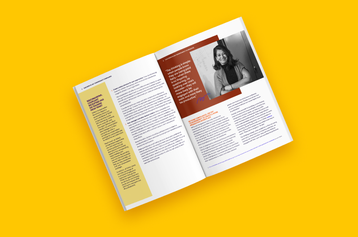Paperless Payroll Processing: 7 Ways It Can Help Your Business

Table of contents
- 1.Benefits of Paperless Payroll Processing
- 2.Cost savings
- 3.Faster processing
- 4.Environmental benefits
- 5.Improved accuracy and security
- 6.Streamline payroll taxes
- 7.Ample storage
- 8.Accessibility
- 9.Considerations of Paperless Payroll Processing
- 10.Making a Decision
Every business need to run payroll to pay their employees, but it can be daunting to deal with manual processing and paper checks and pay stubs. Thankfully, paperless payroll processing can help a business with the use of a digital or electronic solution for collecting, processing, and delivering employees’ payroll-related information and other related functions.
These tools are often provided by a single payroll processing system, like TriNet’s, helping to streamline and simplify the payroll process.
Transitioning to paperless payroll processing can have a powerful impact on a business. Paperless payroll processing services fall into three basic categories:
- Electronic payroll records. This covers essential electronic payroll processing tracking and calculation.
- Employee self-service (ESS). ESS software combines your electronic payroll records with other HR tools, like benefits administration and other job-related functions. The platform can also integrate with time and attendance software which helps to integrate employee clock-in and clock-out data, easily calculating the number of hours worked.
- Electronic funds transfer. This includes direct deposit tools, including electronic paychecks. EFT platforms streamline the payroll process by eliminating paper checks and automating essential functions.
This article will outline some of the benefits of paperless payroll processing, as well as some of its unique challenges to help you make the best decision for your business.
Benefits of Paperless Payroll Processing
There are many reasons for a small to medium-size business to consider switching to paperless payroll processing; it’s not just for large corporations. These benefits can include:
Cost savings
Using direct deposit to pay employees rather than paper checks and mailing cost can save money. On average, sending out paper checks costs nearly twice as much as paperless payroll processing alternatives.
Faster processing
Paperless payroll processing can make paying employees incredibly fast and easy. By paying employees electronically, you automate the payroll process and can give employees faster access to their hard-earned pay.
Pay cards have become popular in recent years as an alternative way employees can get paid. These are a type of prepaid debit cards enrolled by employees and offered by the employer. Wages are deposited on that card instead of into bank accounts.
Environmental benefits
The environmental impact of paper use is clear, with pulp and paper manufacturers accounting for 70% of global greenhouse gas emissions. By discontinuing the use of paper documents, your company can help to reduce its carbon footprint.
Going paperless also cuts down on the paper products often littering workspaces. This minimizes visual distractions and may improve focus for employees.
Improved accuracy and security
By automating payroll and HR functions, you help to minimize the chance of human error hindering payroll processing. Less worry about paychecks getting lost in the mail when they are deposited directly into an employee's bank account.
Electronic encryption helps to ensure data security, more so than a lock and key. Likewise, electronic signatures are more accurate than ever. Electronic signatures are even preferred by the federal government, as part of the Government Paper Elimination Act.
Streamline payroll taxes
An electronic payroll system can help you generate tax forms and file your payroll taxes, in some cases automatically. In many cases, you can file your payroll taxes within the same platform.
With some paperless payroll processing platforms, you may have access to tax forms and information on their deadlines. The program will also help you stay updated with ever changing requirements regarding payroll and payroll taxes. As a result, you and your business will be better equipped to stay on top of payroll compliance.
Ample storage
Physical storage always has limitations, whether monetary or physical. With digital storage, you'll have more space than filing cabinets for records and employee data.
With cost-effective cloud storage and hard drive options, your business will have continued access to important data that can be stored for years to come, with less fear of damage or lack of space.
Accessibility
With an electronic, paperless system, you, your employees and your HR team are able to access it from anywhere. This helps to improve the employee experience and makes remote work easier and more efficient, especially for those team members who may need to work from home.
Considerations of Paperless Payroll Processing
There are responsibilities and requirements to meet no matter how you process payroll. And paperless payroll processing has some unique issues.
Some employees may not have reliable internet access or the ability to use online banking. Some might just prefer or need paper checks and pay stubs. Consider the needs of your employees before jumping into a paperless payroll processing system.
Likewise, some states require employees to authorize receiving their wages via direct deposit. State-specific requirements for final wages to be paid timely upon an employment separation and when wages are considered to be paid may also make direct deposit a poor choice for such payments.
However, going paperless can help your organization maintain payroll compliance. The Fair Labor Standards Act requires employers to keep payroll records on file for at least three years and some states may require payroll records to be kept longer. Using a digital service automates recordkeeping, making it easier than ever to pull employee data out of digital storage and comply with federal and state laws.
Making a Decision
TriNet offers online payroll processing services which makes it easy to go paperless—with e-pay stubs and electronic Form W-2 preparation and delivery. Our payroll processing includes direct deposit and pay card options. You also can view estimated payroll invoices, which are automatically updated as you add your employees and make other changes. Our self-service platform also lets your employees enroll in direct deposit, view pay stubs, change their status, view and print Form W-2s and track paid time off requests and balances.
If you're thinking about paperless payroll processing, take TriNet's assessment today to learn more about the TriNet solutions that can help with your business needs.
This communication is for informational purposes only, is not legal, tax or accounting advice, and is not an offer to sell, buy or procure insurance.
This article may contain hyperlinks to websites operated by parties other than TriNet. Such hyperlinks are provided for reference only. TriNet does not control such web sites and is not responsible for their content. Inclusion of such hyperlinks on TriNet.com does not necessarily imply any endorsement of the material on such websites or association with their operators.

TriNet Team
Table of contents
- 1.Benefits of Paperless Payroll Processing
- 2.Cost savings
- 3.Faster processing
- 4.Environmental benefits
- 5.Improved accuracy and security
- 6.Streamline payroll taxes
- 7.Ample storage
- 8.Accessibility
- 9.Considerations of Paperless Payroll Processing
- 10.Making a Decision





